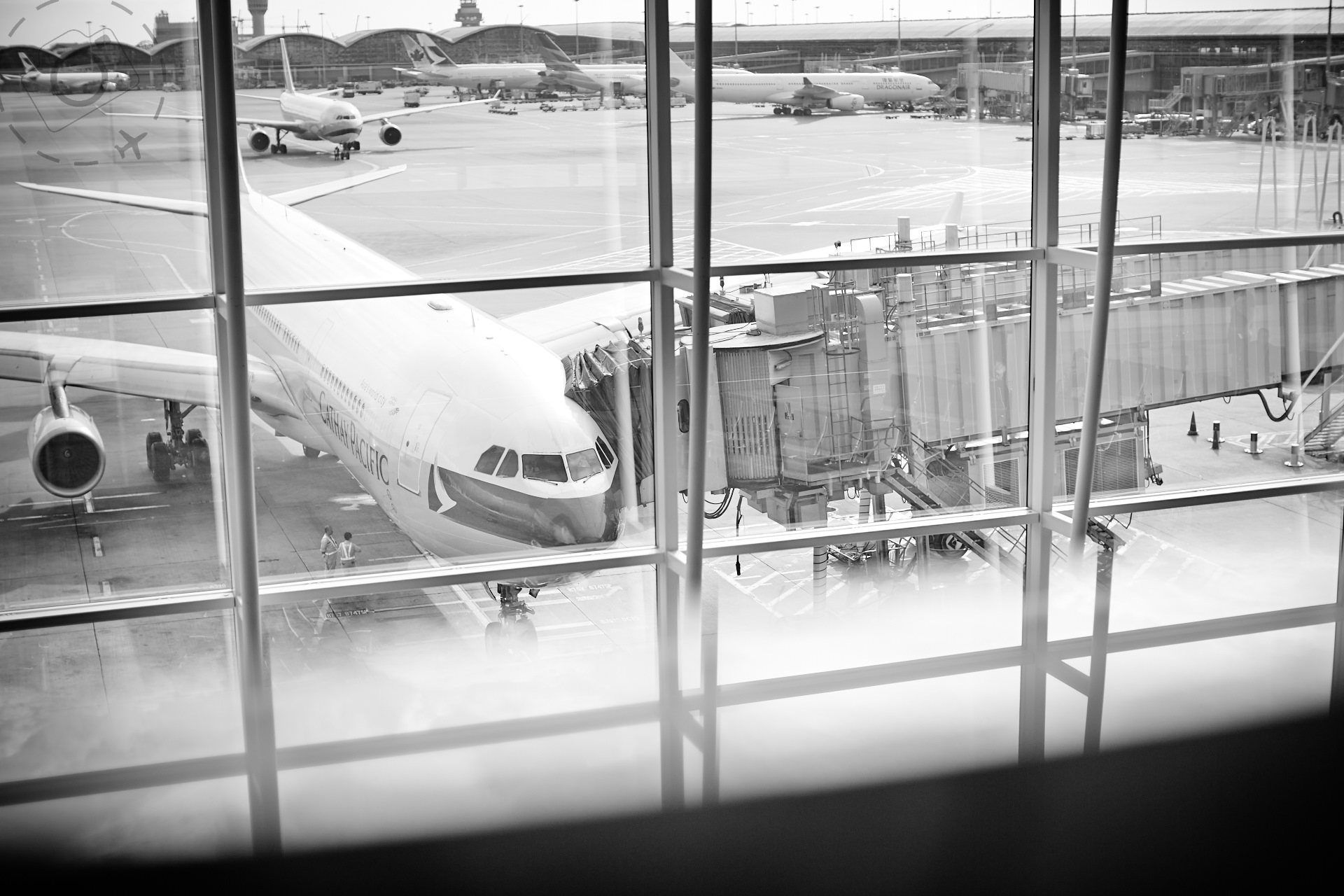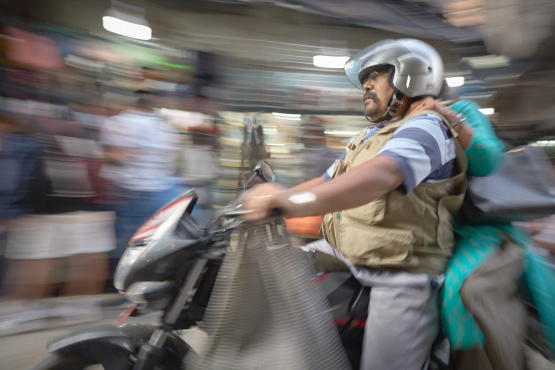The Cattle Run
Airport duty-free shopping has taken over the landscape of international departure terminals across Australia. You have to negotiate an obstacle course of cheap booze and even cheaper perfume just to reach the plane, while zealous sales girls pounce on inexperienced travellers who can't find their way to the gate lounge. Avoid eye contact at all costs.
I'm told there was a time when duty-free shopping really did save you money, but I'm afraid I don't remember it. The idea that avoiding sales tax will spare some pain in your wallet has been eroded by ever shrinking tax scales, and superseded by the power of the internet to make market prices more competitive.
After a spot check on prices of DSLR cameras, compact cameras, memory cards and even laptops we found no evidence that buyers can be sure of getting a bargain when they shop duty free. The main problem is the lack of competition once you're in the airport terminal, and it's not just in Australia. Airports like Bangkok and Singapore suffer the same basic problem, where one company owns every single electronics retail outlet across every terminal. There may well be three different stores selling cameras, but they're actually the same store and the prices don't vary.
The only real competition for these stores are savvy shoppers armed with a smartphone. Unlike the camera stores at your shopping mall the duty-free retailers wont haggle over prices, because it's not as though you're going to be able to shop elsewhere until your next destination.
The idea of bargain prices at international airports is somehow entrenched in our expectations. The stores do their best to seed our expectations with the liberal use of words like 'tax free' and 'discount'. With very few exceptions it's mostly bollocks, and the prices inside the terminal are never as cheap as outside.
Hello Hong Kong
Frequent travellers work out pretty quickly that duty-free is mostly discount free, so start looking for other ways to save a dollar. Cities like Hong Kong and Singapore have long held a reputation for offering shoppers great value, but times are changing. Trade tariffs once accounted for much of the value on an overseas shopping trip, but now it's down to pure volume to drive lower prices. This is a twin edged sword for the buyer who now enters a market where quality is often usurped by price.
If you're shopping for top end products or specialist gear, then you might find it cheaper at home anyway. If you just want the cheapest brand of battery instead of buying the genuine article then Hong Kong is heaven. The line between heaven and hell is very fine though, and the most popular shopping streets of Hong Kong are packed with dodgy dealers who run any number of scams on less experienced buyers.
Most stories of unfair trading boil down to some kind of bait and switch scam, where the shopper examines a genuine product in the store but ends up going home with something else. It could be a cheap knock-off, a different model or a damaged item. Even the process of currency exchange can trip up the buyer, with figures thrown about in the store that look very different when you get your credit card statement back home.
Singapore has less worries about dodgy dealers but also less potential for bargain prices. Your best savings will come from bagging sale items rather than across the board discounts.
Warranties are a common source of trouble, with dealers claiming to offer international warranty on a camera when no such thing exists. Even if you're buying the genuine article, the warranty is one of the major drawbacks to shopping overseas. Most camera manufacturers have regional warranty restrictions that reflect the cost of providing technical assistance in different countries. If you buy a DSLR in Australia then some of that money goes towards the cost of resolving warranty repairs in Australia.
That's often a major reason why prices here are higher than in the USA for example, because our smaller market simply costs more to support a warranty under.
Virtual Shopping
By now you've weighed up the real cost of buying in a foreign currency, decided if the GST credits are relevant to your case or not and assessed whether you're willing to take on the risk of buying without warranty protection. You may decide that there's no need to wait for your next Asian holiday to go shopping, you can just buy online instead.
Trust is the key ingredient to dealing with merchants overseas. You're basically sending your money to someone you've never met, who works under different laws to our own and achieves their price reduction by offering the absolute lowest level of service possible. If you're buying a lens cap then the risks seems pretty minimal, but purchasing a Hasselblad system might create a little more anxiety while you wait for the parcel to arrive.
Everybody has a friend who bought a tonne of camera gear from some online store in the USA or Hong Kong, and swears they never have any problems. One person's experience is a small sample size, and in any case the test of confidence is how the retailer responds when there is a problem. Parcels do go missing, things do get broken in transit and shipments do contain the wrong product on occasions.
Aside from the fore mentioned warranty issue there is also the matter of duty to be paid for when importing goods. Whether arriving by plane, mail or pigeon you are supposed to declare goods above a certain value and pay the appropriate customs duty on them. In practice only a percentage of parcels are examined and evaluated for these duties, but that means you're now holding a lottery ticket to see whether or not the extra costs will be added to your purchase.
Ebay is unlike anything else online and represents a category all of its own. The shopping experience is heavily distorted by rabid consumers looking to save every last cent and the bottomless pit of stores attempting to entice buyers with promises of satisfaction. Ultimately you get what you pay for when dealing with 'companies' who trade out of their parent's spare room in a suburb of Shenzhen.
The raw market forces at work on Ebay creates a race to the bottom for price and quality. This is no place to shop for top shelf products, unless you're more interested in seeking out those preloved items being sold by real people who live in your own city. You may have to trawl through a lot of trash in order to find a few treasures.
Local Satisfaction
I've had some good bargains from Ebay and I've had some utter rubbish. On some occasions I should have known better, on others I was simply scammed and out of my money. Even when I got a good deal and bought a good product there's still something not right about the experience. The lack of human element makes the shopping process impersonal, but also removes the opportunity to learn something unexpected.
What I like most about walking into a camera store is the potential for discovery, to learn about a new kind of filter or a different brand of lens. Online shopping funnels your search towards those things you already recognise, but a real store has far more depth to the experience. You never know what sales staff will suggest to you, even if they're sometimes motivated by commissions instead of curiosity.
Remember that most people working behind the counter at a camera store are photographers too, people with a genuine interest in the gear and who are keen to share what they know - whether you agree with their point of view or not. If you do find a camera store where the staff know less about the products than you do, then maybe keep looking for a better one.
I've met a few retailers who doggedly pitch a particular camera brand or technology despite my declared preference, and their advice is not always well informed. The best sales people recognise that most people who walk into a store already know what brand they want to buy and no logic or reasoning will sway their decision. Nobody buys a camera based on specifications, we all have our bias and that's what leaves room in the market for more than just a couple of brands.
The smart staff will show you other cool gizmos to spend your money on instead, and hence you're still getting an education from the in-store shopping experience.
There are some retailers in Australia that I would never walk into, because I know too many people who got sold a turkey by an unscrupulous salesman. These are the exceptions, and your local shopping mall camera store will more than likely give you great advice if you let them. That little chat over a memory card might lead discussion of a new lens or camera strap that better suits your photography.
Shopping locally in Australia is not just about avoiding faulty goods and getting the full warranty, it's about recognising the value of service. It might cost a few more dollars to buy a memory card at home, but even a little advice from a salesman can help you save that money in other ways. Having a trusted seller of photographic gear can add to your enjoyment of the craft over the years, and reward you far beyond merely saving a few pennies.

Keep Reading
Join Ewen's newsletter for monthly updates on new photography articles and tour offers...Subscribe Here









